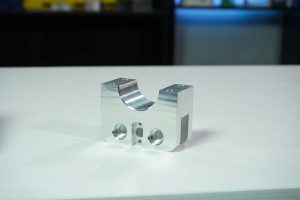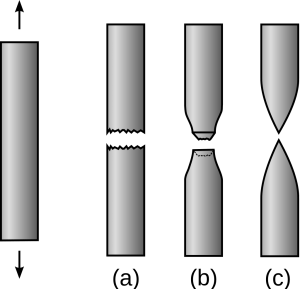When you go to the hospital or doctor’s office, you expect the medical devices used on you to be reliable and safe. These devices are critical in diagnosing and treating illnesses, and the parts that make up these devices must meet stringent regulations and specifications. Custom machined parts are often an integral part of these medical devices, and their production must meet these stringent standards to ensure their reliability and safety.
The Importance of Custom Machined Parts in Medical Devices
Medical devices range from simple instruments like stethoscopes to complex machines like MRI scanners. Custom machined parts are often used in these devices to provide the necessary precision, durability, and reliability.
For example, a pacemaker, a medical device that helps regulate a person’s heartbeat, requires custom machined parts to function correctly. The parts used in a pacemaker must be extremely precise and durable, as they are implanted in a patient’s body and need to last for years without failure.
Custom machined parts are also used in surgical instruments, prosthetics, and other medical devices. These parts must be made with precision to ensure they fit together correctly and function as intended.
Regulations and Standards for Custom Machined Parts in Medical Devices
Medical devices and the parts used in them are highly regulated by various organizations, including the US Food and Drug Administration (FDA) and the International Organization for Standardization (ISO). These organizations set standards for the production, testing, and use of medical devices and their components.
Custom machined parts must meet these stringent standards and regulations to ensure they are safe and reliable for use in medical devices. Manufacturers of custom machined parts must follow specific procedures and quality control measures to ensure compliance with these regulations.
One of the most critical standards for custom machined parts in medical devices is ISO 13485. This standard outlines the requirements for a quality management system for medical devices, including the production of custom machined parts. This standard requires manufacturers to have a robust quality management system in place to ensure the safety and reliability of their products.
In addition to ISO 13485, custom machined parts for medical devices must meet other standards and regulations, including those related to materials, cleanliness, and sterilization.
Materials Used in Custom Machined Parts for Medical Devices
The materials used in custom machined parts for medical devices must meet specific standards and regulations to ensure their safety and reliability. The materials used must be biocompatible, meaning they are non-toxic and non-reactive with the human body.
Some of the materials commonly used in custom machined parts for medical devices include titanium, stainless steel, and plastics like PEEK (polyether ether ketone). These materials are known for their biocompatibility, durability, and resistance to corrosion.
When selecting materials for custom machined parts for medical devices, manufacturers must consider factors like strength, weight, and resistance to wear and tear. They must also consider the specific requirements of the device and the patient’s needs.
Cleanliness and Sterilization of Custom Machined Parts
Custom machined parts for medical devices must be thoroughly cleaned and sterilized to ensure they are safe for use in the human body. These parts may be exposed to bodily fluids and other contaminants during use, making proper cleaning and sterilization critical.
Manufacturers of custom machined parts for medical devices must follow specific procedures and protocols for cleaning and sterilizing their products. These procedures may include cleaning with detergents and disinfectants, sterilization with heat or radiation, and testing to ensure the parts are free from contaminants.
The Importance of Working with a Qualified Manufacturer
The production of custom machined parts for medical devices requires expertise and knowledge of the regulations and standards governing their production. Working with a qualified manufacturer is critical to ensuringthe safety and reliability of these parts.
A qualified manufacturer of custom machined parts for medical devices will have experience producing parts that meet the stringent regulations and standards of the industry. They will have a robust quality management system in place and follow specific procedures for the production, testing, and cleaning of their products.
When selecting a manufacturer for custom machined parts for medical devices, it’s essential to consider their experience, certifications, and quality control measures. Working with a qualified manufacturer will help ensure that the parts used in medical devices are safe and reliable.
Conclusion
Custom machined parts are critical components of medical devices, providing the necessary precision, durability, and reliability for these devices to function correctly. These parts must meet stringent regulations and standards to ensure they are safe and reliable for use in the human body.
Manufacturers of custom machined parts for medical devices must follow specific procedures and quality control measures to ensure compliance with these regulations. They must use materials that are biocompatible and meet the specific requirements of the device and the patient’s needs. Proper cleaning and sterilization of these parts are also critical to ensuring their safety.
Working with a qualified manufacturer is essential to ensuring the safety and reliability of custom machined parts for medical devices. These manufacturers will have the expertise and knowledge necessary to produce parts that meet the stringent regulations and standards of the industry.
In conclusion, the production of custom machined parts for medical devices is a highly regulated and critical process. These parts must meet stringent standards and regulations to ensure their safety and reliability. Working with a qualified manufacturer is essential to ensuring the safety and reliability of these parts and the devices they are used in.



